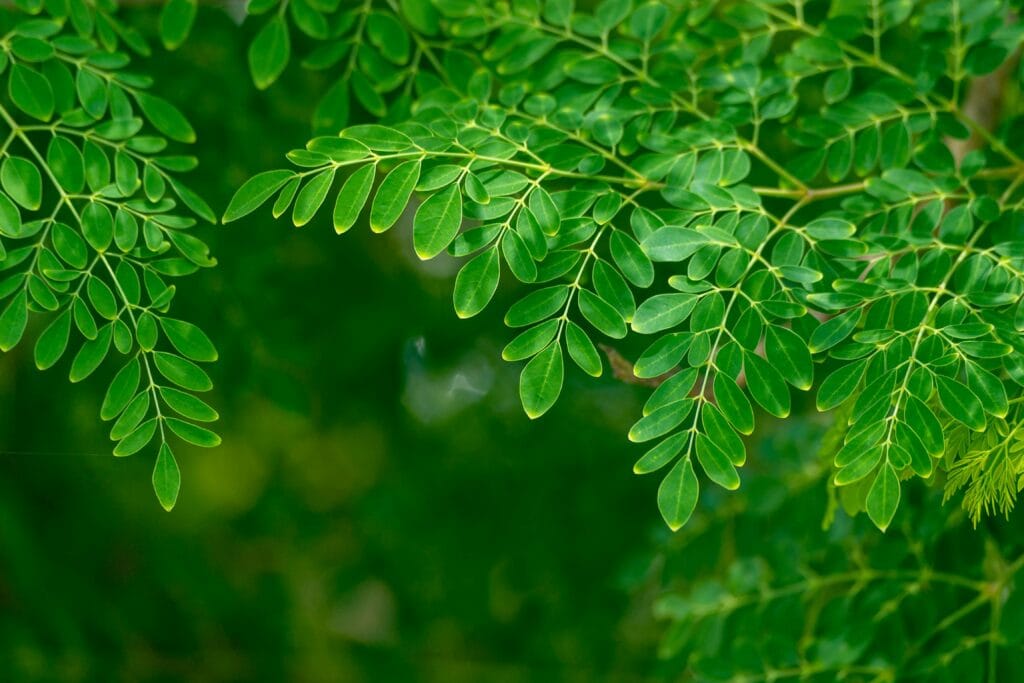In recent years, the wellness world has witnessed the rise of several superfoods — spirulina, chia seeds, quinoa, and more. Yet, there is one plant that has been cherished for centuries in India, Africa, and Asia long before the term “superfood” existed — Moringa oleifera. Known as the miracle tree or drumstick tree, moringa is not just a passing health trend but a nutrient powerhouse backed by tradition and science.
From Ayurvedic medicine to African herbal remedies, moringa has been valued as a food and a healer. Today, its leaves, pods, and powder are used across the globe in smoothies, soups, and supplements. Let’s dive deep into the many reasons why moringa is hailed as one of nature’s greatest gifts.
Nutritional Powerhouse of Moringa
When it comes to nutrition, moringa is unmatched. Gram for gram, moringa leaves contain:
7x more Vitamin C than oranges
4x more Calcium than milk
3x more Potassium than bananas
2x more Protein than yogurt
25x more Iron than spinach
Moringa is also rich in Vitamin A, Vitamin E, Magnesium, Zinc, and B Vitamins. It provides all nine essential amino acids, making it one of the rare plant-based complete proteins.
Top Health Benefits of Moringa
1. Boosts Immunity
Moringa’s Vitamin C and antioxidants strengthen the immune system, making the body more resistant to infections.
2. Regulates Blood Sugar
Studies suggest moringa leaves may help reduce blood sugar spikes, making it useful for people managing diabetes.
3. Improves Heart Health
Its compounds can help lower cholesterol, reduce inflammation, and improve circulation — all essential for a healthy heart.
4. Supports Brain Function
Rich in antioxidants and neuro-enhancing compounds, moringa may help improve focus, memory, and mood.
5. Promotes Healthy Skin & Hair
Moringa oil and leaf extracts nourish skin, fight acne, reduce wrinkles, and strengthen hair roots naturally.
6. Aids Digestion & Detox
Moringa is high in fiber, which supports digestion, and its detoxifying compounds help cleanse the liver.
7. Anti-Inflammatory Properties
It contains isothiocyanates, which reduce inflammation, swelling, and joint pain naturally.
Culinary Uses of Moringa Around the World
In India
Drumsticks (pods) are a key ingredient in South Indian sambar and curries.
Leaves are stir-fried or added to dal for an extra nutrient boost.
Powder is mixed into rotis, parathas, or teas.
In Africa
Moringa leaves are often boiled and eaten like spinach, added to stews, or dried and ground into a health powder.
Globally
Moringa powder has gained popularity as a smoothie and juice additive. Cafés worldwide now serve moringa lattes, similar to matcha.
Sustainability & Environmental Impact
Moringa is not only good for people but also for the planet:
Fast-growing & drought-resistant – thrives even in poor soil.
Purifies water – crushed seeds can bind impurities in water, making it drinkable.
Soil health – improves soil fertility and prevents erosion.
Animal fodder – leaves are used as nutrient-rich livestock feed.
This makes moringa a sustainable solution to malnutrition and food security in developing countries.
How to Use Moringa in Daily Life
Moringa Powder
Add 1 teaspoon to smoothies or juices.
Mix with warm water, lemon, and honey for a detox drink.
Sprinkle over salads, soups, or yogurt.
Fresh Leaves
Cook them lightly with garlic and spices.
Use as an alternative to spinach.
Pods (Drumsticks)
Add to curries, soups, or sambar.
Boil and eat with seasoning.
Moringa Tea
Steep dried leaves in hot water for an energy-boosting herbal tea.
⚠️ Precaution: Excessive consumption may cause digestive issues. Pregnant or nursing women should consult a doctor before heavy supplementation.
Science Behind Moringa
Researchers have studied moringa for its anti-cancer, anti-diabetic, and antimicrobial properties. A 2020 study in the Journal of Food Science and Human Wellness highlighted moringa’s potential role in lowering cholesterol and blood sugar. Another study found that moringa leaf extract showed protective effects against oxidative stress — proving that ancient wisdom and modern science align on moringa’s value.
Moringa in Ayurveda & Culture
In Ayurveda, moringa is called “Shigru”, and it is believed to balance Vata and Kapha doshas. Traditionally, it has been used to treat:
Joint pain
Skin infections
Digestive disorders
Weak immunity
For centuries, Indian households have included moringa drumsticks in daily meals, not just for taste but also for wellbeing.
